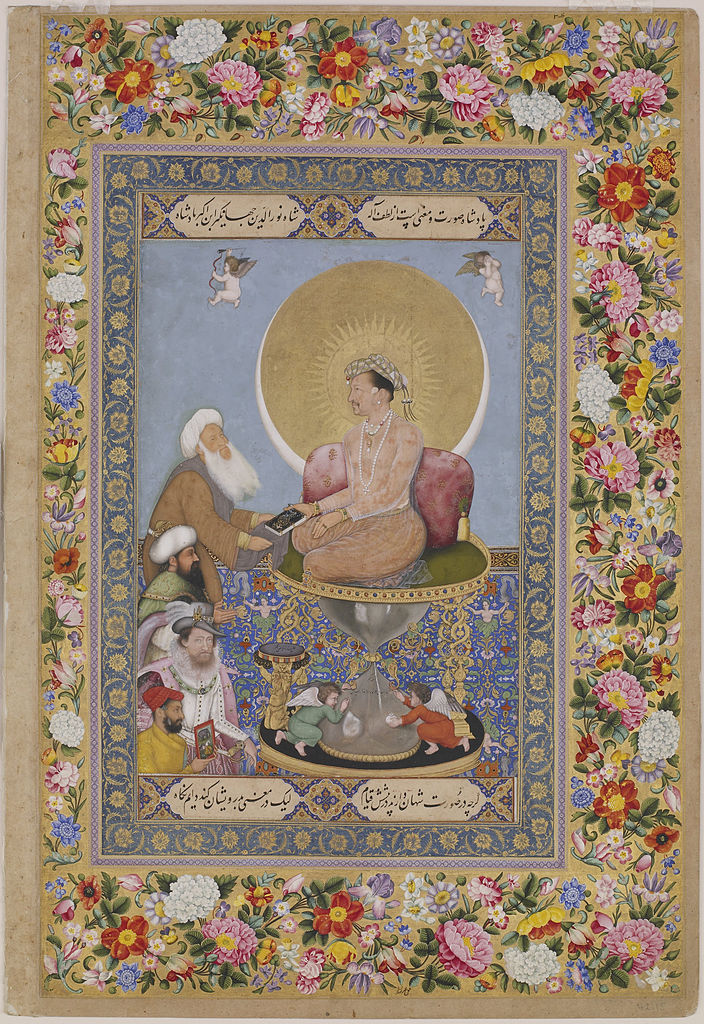Note: The following is the third in a series of eleven weekly posts that present my attempt to answer the question, “How does history connect Westborough and India?” See the Introduction for an overview of the series and to start reading it from the beginning.
–Anthony Vaver, Local History Librarian, Westborough Public Library
Global Trade
British intention to exploit the resources of North America in the early seventeenth century did not go as originally planned. Discovery of gold and silver never panned out, since there was little to find or take from the native population, and the natural resources available in New England turned out to be similar to those back in Britain.
The British lack of success in America was mirrored on the other side of the globe when their goods failed to generate much trade interest in India and other parts of Asia. The manufacturing skill of the British fell far below that of Eastern artisans, and the woolens and linens produced in England paled next to the luxurious cottons and silks made in India. Still, Britain’s advantageous geography off the western shore of continental Europe put them at the crossroads of major sea-going trade routes, and so the country was well positioned to serve as a geographic connector between the Old and New Worlds.
Once the British used their naval superiority to gain command of the seas, they turned their attention to becoming players in the booming global commodities trade. In the West, they took the raw materials they acquired in the Americas—such as tobacco from Virginia and sugar from the Caribbean—manufactured them into processed goods back in England, and then exported the goods to continental Europe and other countries around the world. In the East, the East India Company inserted itself into trade between India and China by acquiring cotton in the former and selling it to the latter for tea, which was then shipped to England and colonial America.
By the nineteenth century, British domination in world trade and shipping allowed more and more local manufacturers to tap into global markets. When the National Straw Hat Factory in Westborough became an international company by distributing its hats throughout the world beginning in the late nineteenth century, it could do so only because the British first created a global trade network that connected India with North America beginning in the seventeenth century.

by Bichitr (active between ca. 1615 – 1640)
(Wikimedia Commons, https://commons.wikimedia.org/wiki/File:Bichitr_-_Jahangir_Preferring_a_Sufi_Shaikh_to_Kings,_from_the_St._Petersburg_album_-_Google_Art_Project.jpg)
In this image of Jahangir, the Mughal Emperor, King James I sits below the emperor as third in the hierarchy, with both Shaikh Salim, an Islamic mystic, and the Ottoman Emperor above him. Bichitr, the artist of the work, sits at the bottom in a self-portrait.

(Westborough Center for History and Culture, Westborough Public Library)
The National Straw Works (1871-1917) located on East Main Street in Westborough, MA, near where the Bay State Commons sits today, exported straw hats and other straw goods throughout the world. Such markets were first created by the British and other European powers in the sixteenth and seventeenth centuries.
* * *
Read the next post in the series: Settlement and Colonization.
Westborough-India Series Bibliography
Beckert, Sven. Empire of Cotton: A Global History. New York: Vintage Books, 2014.
Bunker, Nick. An Empire on the Edge. New York: Vintage Books, 2014.
Collingham, Lizzie. Taste of Empire: How Britain’s Quest for Food Shaped the Modern World. New York: Basic Books, 2017.
Darwin, John. Unfinished Empire: The Global Expansion of Britain. New York: Bloomsbury Press, 2012.
Eacott, Jonathan. Selling Empire: India in the Making of Britain and America, 1600-1830. Chapel Hill, NC: U of North Carolina P, 2016.
Frankopan, Peter. Silk Roads: A New History of the World. New York: Vintage Books, 2015.
Freeman, Joshua B. Behemoth: A History of the Factory and the Making of the Modern World. New York: W. W. Norton & Company, 2018.
Schama, Simon. Civilizations. PBS television series, 2018. http://www.pbs.org/civilizations/home/.
Vaver, Anthony. The Rebellion Begins: Westborough and the Start of the American Revolution. Westborough, MA: Pickpocket Publishing, 2017.
Wilson, Jon. The Chaos of Empire: The British Raj and the Conquest of India. New York: Public Affairs, 2016.